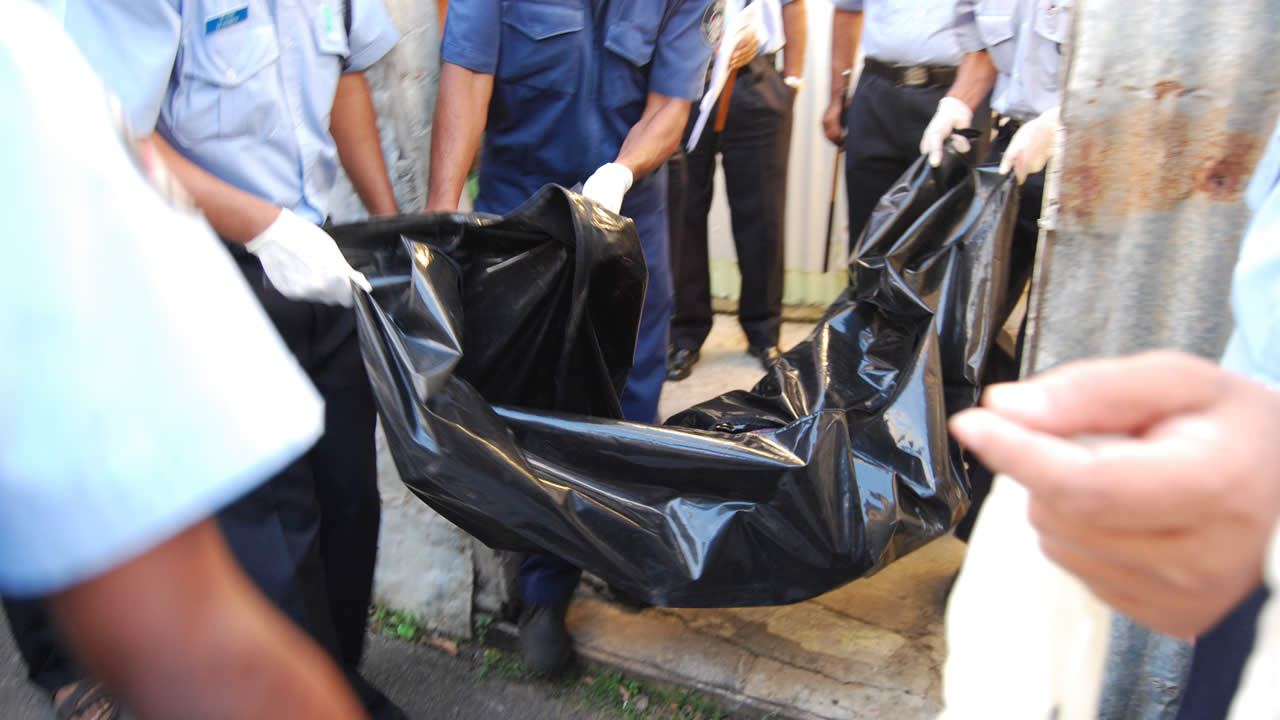
Crime rates in Mauritius, to say the least, have been on an increasing curve since some decades now. According to statistics provided by the Parliament in June, there have been 21% more arrests in the course of criminal investigations in 2017, compared to the year before. News on Sunday contacted one eminent psychologist and a well-known sociologist in Mauritius to clarify why such a trend is exploding in Mauritius.
Sixty-nine percent of those offenders currently serving jail time have been imprisoned in the past. For a small, developing country like Mauritius, the rise in repeated offenders is alarming. There is an urgent need to investigate the cause of this appalling issue. People are concerned and our authorities have to look for effective measures to improve safety in the community.
Psychologist Veronique Wan Hok Chee delineates the circumstances that create a criminal and the social and environmental factors associated with the building up of anti-social behaviors. She also highlights the parts that contribute to turn a person into a belligerent. She argues that criminals “do not have the psychological barriers to differ between what is moral and immoral. They are brought up conscious with the concept that they are going to be arrested. ” Such a person usually might be a product of his own background, the larger society in which he is brought up and sometimes, it may be genetic factors.
The psychologist further affirms that “all human beings can be compared to animals; they tend to struggle for survival; however, animals do not have the verbal capability that humans do. Our society is thus a much more complex, competitive one, with plenty of exigencies and expectations.” She goes on to explain that devoid of psychological tools to tackle problems, especially if these keep cropping up, they may be unable to grapple with the negative emotions that surge, and they subsequently collapse, which may prompt an individual in these dire circumstances to do the irreparable - committing an aggravating act. Under excessive frustration, committing a crime acts as a catharsis and the person not only feels relief but also some sort of satisfaction.
Veronique Wan elucidates that when these hardened criminals go to jail, an enclosed society is formed within its walls. Drug lords befriend those who have shorter sentences. They groom and manipulate them into taking care of their drug business when they are out. Thus the cycle of drug trafficking continues.
Tracking the ex-convicts
The psychologist advises that a follow-up of such types of dangerous prisoners should be implemented as a part of a solution to bring to a halt this cycle of crime. She asserts that rehabilitation is a long process, as it is difficult to just change the thinking processes and behavior of a person overnight. However, this much needed follow-up is currently not being implemented in Mauritius. The Government has to consider this serious issue.
“If you do not provide a follow-up, they will relapse into a life of crimes,” she affirms. It is certain that if criminals do not get what they need as a human being to survive, such as a job, they will face social rejection. In certain cases where criminals have been sentenced for many years, they will even face adaptation problems. “They will feel disoriented,” she added. Eventually, these individuals will all become more frustrated, indulging over and over in the same belligerent and despicable acts.
The psychologist added that in Mauritius, monitoring ex-convicts “costs a fortune.” According to the Parliamentary session in June, prison costs were approximately Rs 775 daily to maintain a detainee in 2017. Furthermore, “NGOs are the ones providing these follow-up services, for instance social aid such as helping criminals in getting jobs and guiding people with procedures and administrative papers. The workload, unfortunately, is so colossal that it is impossible to track all the prisoners, which should be compulsory.”
Critical Role of Society
Furthermore, she deplores that “the main difficulty with NGOs is the lack of funds. They work with limited funds, as they require social workers, social welfare officers, psychologists, and officers to work on field, to inspect whether former criminals are living in good conditions.”

“As a result to a rehabilitation-focused prison system, Norway has one of the lowest recidivism rates in the world at 20%,” according to the Pell Center for International Relations and Public Policy. Veronique Wan believes that this is an exceptional example of what should be applied in Mauritius. “The Mauritian government should pay attention to what can be done immediately; it is a major concern. Before focusing and investing in projects such as the Metro Express, focus on lowering recidivism rates! If you are injecting money in infrastructure and not looking for solutions to alleviate crimes and social issues, then you are not a developing country!”
The psychologist concludes that our society also has a critical role to play, but we are acutely lacking in education towards this issue; we thus fail to emphasize with these criminals. “In the scholastic curriculum, there is nothing implemented on how to cope with anti-social behaviour. We avoid such a topic because it triggers fear. Children should be taught about this from a young age. Parents are apprehensive about their children talking to strangers, but you should know your limits. We find it easier to approach a homeless person or a prostitute but we stay clear of people who have served a jail sentence; this is generally the mentality of people.”
If society discriminates against some of its own people, then we are preventing those same people from achieving their full potential. Veronique Wan explains that we need to show acceptance, or else we will become selfish. “With the rise of the internet, youngsters are at their place the whole day, but there is no communication. Human power, human touch, empathy, human resource is what counts a lot. Humans need social interaction in the end.”
A society that is impersonal
People are becoming fed up with what is happening in society, and they prefer to just let go. Sociologist Dr Mahendrenath Motah says that it is unfortunate that people are witnessing all the horrendous impacts of crime, and they tend to feel that nobody is doing anything about this trend. Criminals think that they are above the law. “I have been working in the prison department since 1971, and my point of view has been analysed thoroughly, these criminals do not listen. It begins with the family, the teachers, social institutions and society.” He also believes that we should not focus on getting the message across with pressure, but rather with measures to sensitize people on having an appropriate behavior, especially for the past and future generations to learn from.
Dr Motah argues that unfortunately, most of the actions being taken are being done for media coverage. “If you do something good, nobody will talk about it; if you do something bad, you will have your picture in the papers. Whatever good you do is on the last page, it’s the opposite of what should be done!” We are going in the wrong direction. “I think it’s high time that some people start to raise their voices and say that enough is enough! We need to look at how we can work things out and how our future generation and society can behave amongst our youth!”
Constrain the Malicious Trend
Concerning vital points covered by the psychologist, Dr Motah also strongly agrees that a follow-up is highly necessary in order to restrain former criminals. “There must be a structure, so that these criminals are closely monitored, and then another institution should take charge of getting those people in employment. There are so many avenues that we can explore; apprenticeship can be enforced.” He also implies that these former criminals can also be used as illustrations for adolescents, for them to avoid choosing certain behaviors and rather indulge in positive activities.
Our society is mirroring all the underlying issues that are not being taken into consideration. We are becoming more and more selfish, caring about our own affairs only. Depression, closely linked to loneliness, was at a rate of 16.7%, according to the Ministry of Health in 2017.
“We are moving towards a society that is impersonal. It was not like this a few generations ago, it was not in the norms. People would talk to each other, if there were something that was not right; it was spoken of, and discussed, to see how this deviance could be repressed. Nowadays, people stand for themselves, if it doesn’t concern them; it is not their problem. It is very egocentric.” Dr Motah also mentions that there are institutions and organizations that have been able to identify these concerning hotspots, and take some action, but unfortunately these are not implemented. “We need to have credible institutions in order to prevent the malicious trend from continuing.”
Positive actions needed
Dr Motah insists that technology is a contributing factor towards the social issues today. With the rise of technology, it is possible for anybody to traffic drugs illegally through the black market; there have been 10% more drug offenses in 2017, according to the Parliament in June. “Television, mobile phones, tablets, everything that man has created has brought rise to these implications; emotional, social, educational, there are so many implications within.
I think instead of trying to find alternatives to what they have, we should use this and try turning them into positive activities. Colleges, teachers, parents, social workers, should all think about how they can positively use what is being used negatively. There is so much to be done, that we can do, but unfortunately we do not have the people with that power to work things out. Anyway, there is hope.”
 J'aime
J'aime













